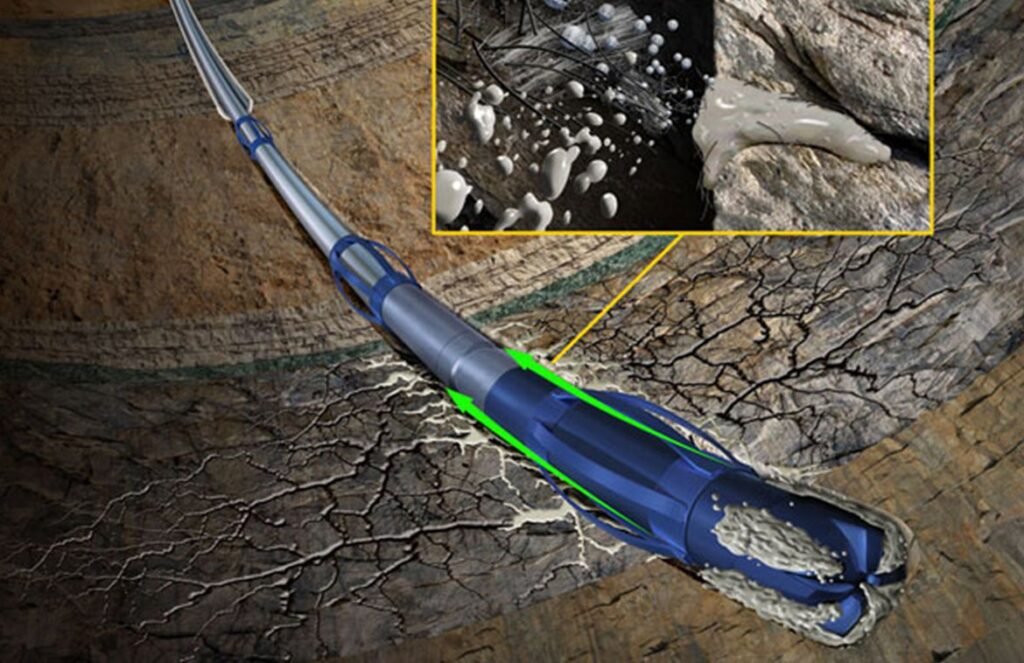- Moisture Removal from Metal Minerals
Sodium polyacrylate and other super absorbent polymers (SAPs) are effective in absorbing moisture from metal minerals during activities like mining. This is crucial as heavy metals, highly toxic and non-degradable, pose significant environmental and health risks. Sodium polyacrylate is chosen for its rapid absorption capabilities, cost-effectiveness, non-toxicity, and biocompatibility. - Mining, Oil & Gas DrillingSAPs play a pivotal role in the shale oil and gas industry by solidifying drilling fluid waste (e.g., drilling mud, drill cuttings) immediately upon generation. Compared to traditional absorbents and cement products, SAPs excel in liquid absorbency and retention, thereby helping companies reduce waste disposal costs, treatment time, and environmental impact.
- Tunnel Directional Drilling
In Horizontal Directional Drilling (HDD), SAP technologies are essential for quickly solidifying drilling fluid waste at the source or centralized waste treatment facilities. This approach minimizes waste disposal expenses and environmental footprint due to SAPs’ superior absorbency and retention compared to other absorbents and cement products. - Waste Landfills & Sludge Management
Liquid-bearing wastes such as wastewater treatment sludge, slurry, and mine tailings are challenging to handle and can endanger natural ecosystems. SAPs are extensively used by remediation contractors to solidify liquid-bearing waste on-site, reducing treatment time and disposal costs at landfills. Their high absorbency and retention properties make them superior to conventional absorbents. - Environmental Remediation
Industrial processes generate liquid-bearing waste streams that are costly and technically complex to manage. SAPs are employed by environmental remediation professionals to solidify industrial waste before off-site disposal, minimizing costs and environmental impacts significantly. - Medical Waste Disposal
SAPs are also utilized in medical settings to manage liquid waste from procedures, medical devices, and laboratory testing fluids. They improve safety and reduce costs associated with handling biological waste, making them indispensable in healthcare waste management.
In conclusion, SAPs, particularly sodium polyacrylate, offer substantial advantages over traditional absorbents such as sawdust and cement. Despite a higher unit cost, SAPs require significantly lower dosages (0.5% – 1.5% by weight) to solidify liquid waste streams compared to cement (10% – 25%) and sawdust (100% – 200%). This efficiency not only reduces waste volumes disposed of in landfills but also lowers overall project costs, making SAPs a cost-effective choice for various industrial and environmental applications.

